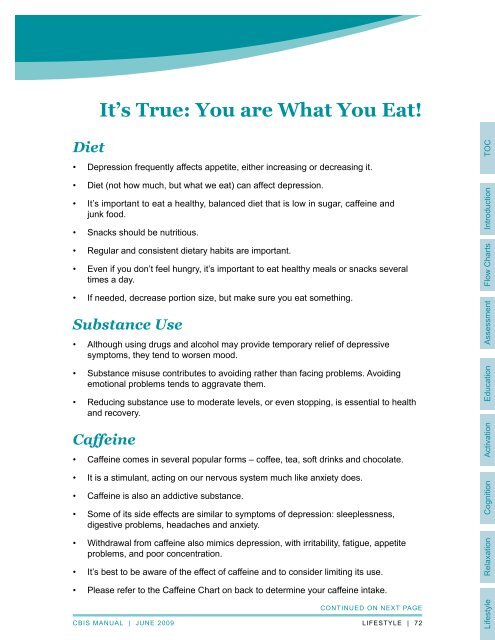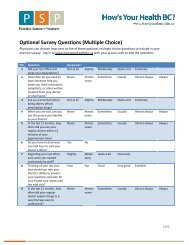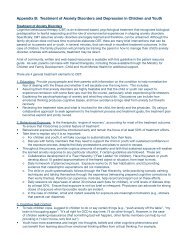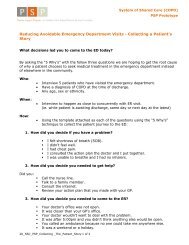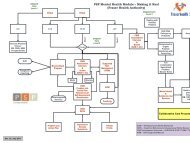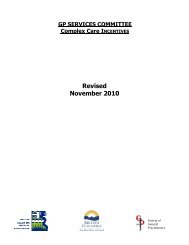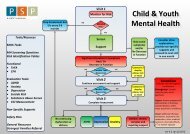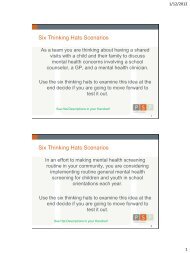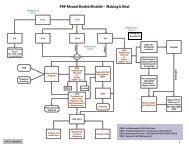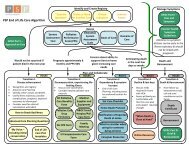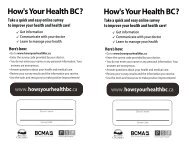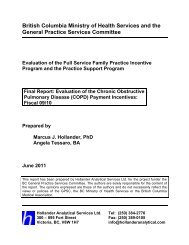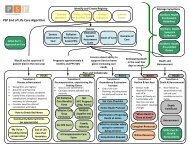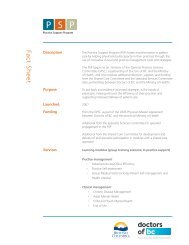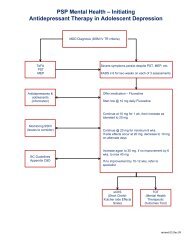cognitive behavioural interpersonal skills manual - GPSC
cognitive behavioural interpersonal skills manual - GPSC
cognitive behavioural interpersonal skills manual - GPSC
- No tags were found...
Create successful ePaper yourself
Turn your PDF publications into a flip-book with our unique Google optimized e-Paper software.
DietIt’s True: You are What You Eat!• Depression frequently affects appetite, either increasing or decreasing it.• Diet (not how much, but what we eat) can affect depression.• it’s important to eat a healthy, balanced diet that is low in sugar, caffeine andjunk food.• Snacks should be nutritious.• Regular and consistent dietary habits are important.• Even if you don’t feel hungry, it’s important to eat healthy meals or snacks severaltimes a day.• If needed, decrease portion size, but make sure you eat something.Substance Use• Although using drugs and alcohol may provide temporary relief of depressivesymptoms, they tend to worsen mood.• Substance misuse contributes to avoiding rather than facing problems. Avoidingemotional problems tends to aggravate them.• Reducing substance use to moderate levels, or even stopping, is essential to healthand recovery.Caffeine• Caffeine comes in several popular forms – coffee, tea, soft drinks and chocolate.• It is a stimulant, acting on our nervous system much like anxiety does.• Caffeine is also an addictive substance.• Some of its side effects are similar to symptoms of depression: sleeplessness,digestive problems, headaches and anxiety.• Withdrawal from caffeine also mimics depression, with irritability, fatigue, appetiteproblems, and poor concentration.• It’s best to be aware of the effect of caffeine and to consider limiting its use.• Please refer to the Caffeine Chart on back to determine your caffeine intake.Continued on next pageCBIS Manual | JunE 2009liFESTYle | 72


